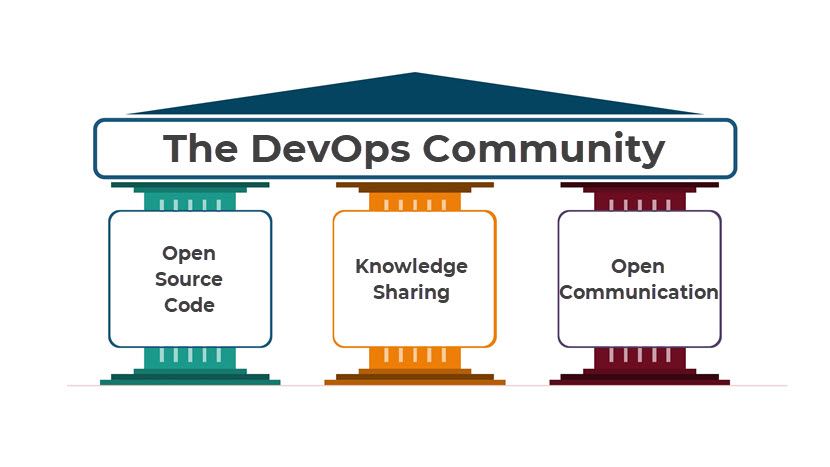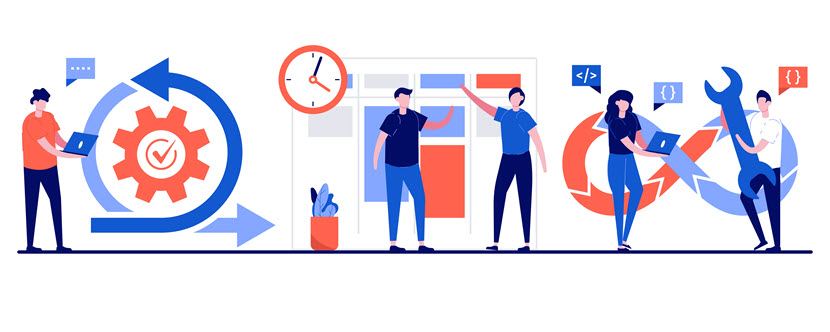How phoenixNAP Is Giving Back to the DevOps Community
Since phoenixNAP transitioned to DevOps, this mindset has been critical to making our products more reliable and stable while maintaining the software development speed necessary in an increasingly competitive market. However, we didn’t make this leap alone – we relied on the support of the DevOps community.
Let me tell you a little about how phoenixNAP is repaying the debt.
What is the DevOps Community?
Long before project management gurus codified the DevOps philosophy, engineers converged on online forums and at meetups to discuss ways of making software better and their jobs easier. It was this decentralized global community that laid the groundwork for what is now the dominant paradigm. We know this set of principles and practices as DevOps.
It is this vibrant community that enables companies to transition to DevOps without expensive consultants and software services, as almost all the necessary tools and resources are open-source and available online.
Tools like Kubernetes, Jenkins, and Docker level the playing field for companies large and small and make it possible for any team of developers with a great idea to impact any industry.
In a nutshell, this is what DevOps is all about – unlocking latent potential and removing barriers through collaboration.
If you’re not sure that DevOps is right for your company, check out our article on why We Embraced DevOps and Never Looked Back.
Our Three Pillars of Community
Keeping in mind the principles of DevOps, our strategy of giving back to the community rests on three goals: supporting open source, sharing knowledge, and bringing people together.

We Support Open Source
The rise of DevOps was primarily made possible by the open-source philosophy of free collaboration between software engineers. We proudly continue this tradition by helping others on their journey.
The code we use is freely available to download in our GitHub repository, which we regularly update with new integrations for the latest DevOps tools. Various automation scripts, IaC modules, and GitHub actions provide a world of possibilities for anyone with the know-how to use them.
We are also committed to providing infrastructure support to a number of open-source initiatives, foundations, and communities worldwide. Most notably, we sponsor the Apache Foundation, a nonprofit organization helping open-source projects, and Sourceforge, one of the first free, open-source code repositories.
We Share Our Knowledge
PhoenixNAP hosts one of the most popular tech-focused blogs covering various DevOps topics. Our in-house writers create and fact-check articles that help millions of people worldwide.
We also maintain a knowledge base with around 1000+ in-depth tutorials on everything from server and database management to virtualization and security practices.
And finally, we host educational webinars focused on new developments and best practices in the world of DevOps. These webinars feature industry-leading experts, who share their unique insights and perspectives free of charge.
Check out the article written by our lead developer Peter Borg on How to Transition to DevOps in 6 Simple Steps.
We Bring People Together
We host a public Slack channel where anyone can join the chat and ask our engineers directly about our products. Even though we originally created the channel to communicate with clients, it has become a place for developers to talk to developers.
However, if the pandemic has taught us anything, it is that people crave real connections. Technology cannot completely satisfy that craving, even though it bridges the gap for a while.
That is why we organize networking events and trade shows that create the opportunity for the best and brightest in the data center industry to mingle, get to know each other, and discuss pressing topics in IT. We also sponsor the DevOpsDays events, and this year alone, we participated in DevOpsDays Raleigh, Seattle, Charlotte, and DevOps World 2022.

Key Takeaways
Communication and sharing have always been the foundations of DevOps. We want to nurture these core characteristics and give back to the DevOps community in an authentic and meaningful way because we understand that by doing so, we also help ourselves.
The history of innovation has shown that new ideas arise, and paradigms shift when we welcome change and are generous with knowledge. To remain on the cutting edge of innovation and supercharge software development, we must provide a platform for developers to talk and make sure we listen.